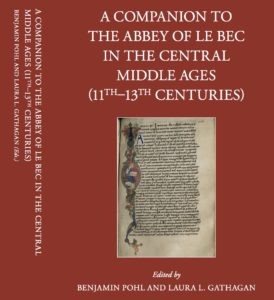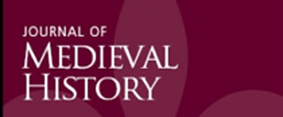
PhD student Stephen Leccese, who recently published two journal articles.
Students in Fordham’s MA and PhD programs produce original research of the highest quality, and are encouraged to publish this work when and where it is appropriate during their time in the program. The academic year 2016-2017 saw the appearance of articles by a number of our students in different peer-reviewed volumes and journals. We asked our students who published their work to tell us a little bit about the articles and the writing process and we’ll feature these students and their publications in a short blog series.
First up is Stephen Leccese, an American historian in the PhD program working with Professor Christopher Dietrich. Leccese has achieved the remarkable feat of publishing two journal articles virtually simultaneously. He wrote to tell us about both:
“John D. Rockefeller, Standard Oil, and the Rise of Corporate Public Relations in Progressive America, 1902-1908,” Journal of the Gilded Age and Progressive Era 16.3 (July 2017): 245-63.
This article is a shortened version of my Master’s research paper, which Prof. Chris Dietrich advised. I became interested in progressivism in Prof. Dietrich’s American Political and Intellectual History since 1877 class, particularly on how the “robber barons” defended themselves against attacks from progressive muckrakers who exposed businessmen’s unethical practices. For a case study, it was natural to look at the Standard Oil Company, the most visible of the great trusts and the subject of muckraker Ida Tarbell’s classic The History of the Standard Oil Company. Since the Supreme Court successfully dissolved Standard Oil in 1911, historians have exclusively considered the company’s response to Ida Tarbell insufficient from a public relations perspective. Yet from what I saw, no historians had actually examined what the company did do. That was how I found my historiographical gap. I decided to go into the archives and tell the story of how Standard Oil and John D. Rockefeller attempted to recover their reputations with public statements, official histories, and some of the first professional PR agents in American history. When placed in historical context, this response was groundbreaking – the field of PR was in its infancy, so Standard Oil agents were largely making this up as they went along. Going further, I tied this small study to the Progressive Movement at large. In the Standard Oil case, progressives attacked a corporation, and that corporation defended itself by developing the PR field. This started a trend of other businesses following suit, and by the 1920s the modern public relations field was largely established. Therefore, I argue that the anti-business activities of the progressives inadvertently helped big business establish itself. The editor of the Journal of the Gilded Age and Progressive Era liked this provocative argument about progressivism, and it definitely helped get this article published.
“Economic Inequality and the New School of American Economics,” Special Issue – Growing Apart: Religious Reflection on the Rise of Economic Inequality, Religions 8.6 (2017): 99-110.
This article began life as my first-year PhD research paper, where I examined how a new generation of American economists argued that consumer spending was key to economic growth, breaking from previous classical economics. After some revising, I presented the paper at the Growing Apart: The Implications of Economic Inequality Interdisciplinary Conference at Boston College in March, 2016. After the conference, the organizers contacted me and said that my paper was among a group that they would like to publish in a special issue of the journal Religions (the conference sponsor was the BC theology department, hence the journal choice). I accepted and expanded the paper into a peer-reviewed piece. In the article, I examine how the various crises of the late nineteenth century – namely economic depression and increasing labor unrest – showed a group of younger economists that economic inequality was harmful to the social fabric. They argued that greater equality would create a working class that had increased spending power, which would lead to economic growth and more stable class relations. My main sources were numerous economic publications and several archival collections that these economists left behind. After establishing this new theory of consumption, I trace how the New Economists tried to put their ideas into practice. Importantly, they formed the American Economic Association in 1885 with the intention of spreading their message among the economic community. I conclude briefly by showing that by the 1890s, the New Economists were influencing public policy by working with politicians – particularly, several directly advised Theodore Roosevelt, first when he was governor of New York and later when he was president. The overall claim is that mass consumption was an aspect of social reform, something that is typically not considered in histories of consumerism.
Thanks Stephen, and congratulations on your two articles!











